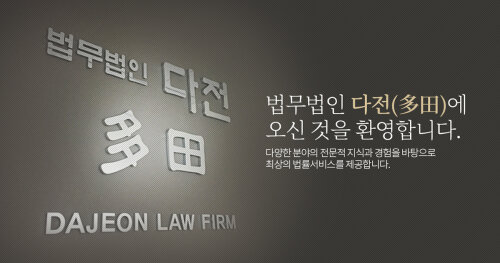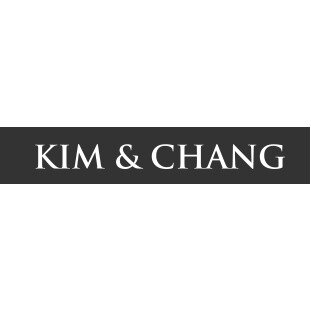Best Creditor Lawyers in South Korea
Share your needs with us, get contacted by law firms.
Free. Takes 2 min.
Or refine your search by selecting a city:
List of the best lawyers in South Korea
About Creditor Law in South Korea
Creditor law in South Korea is designed to protect the rights of creditors while ensuring fair treatment of debtors. It encompasses a range of legal frameworks that govern how debts are pursued and managed, emphasizing the importance of contractual obligations and the enforcement of claims. South Korean creditor law includes rules on insolvency, secured transactions, and the recovery of debts through legal proceedings. The legal system provides various mechanisms through which creditors can assert their rights and recover debts owed to them in a structured and enforceable manner.
Why You May Need a Lawyer
The complexities involved in creditor-debtor relationships in South Korea necessitate professional legal guidance. Common situations where individuals or businesses may require legal assistance include:
- Negotiating and drafting credit agreements or loan contracts.
- Recovery of unpaid debts or enforcement of security interests.
- Handling bankruptcy or insolvency proceedings involving debtors.
- Resolving disputes related to creditor and debtor rights.
- Understanding and complying with regulatory requirements for lending and collections.
A lawyer can help navigate the specific legal landscape, provide strategic advice, represent parties in negotiations or court, and ensure that all legal procedures are correctly followed.
Local Laws Overview
Key aspects of creditor law in South Korea include:
- Contract Law: Governs the validity, interpretation, enforcement, and breach of agreements between creditors and debtors.
- Security Interests: Rules around secured transactions to protect the interest of creditors, often involving collateral.
- Insolvency and Bankruptcy Law: Procedures and rights of creditors in the event a debtor cannot meet their financial obligations.
- Debt Collection Practices: Regulations that ensure fair collection practices, preventing abusive or unethical methods.
- Judicial Recovery: Legal processes available for creditors to claim debts through court interventions.
Frequently Asked Questions
What is the legal process for recovering a debt in South Korea?
Creditors can file a lawsuit in civil court to seek payment. If the debtor defaults, the creditor may request the court to issue a payment order. Engaging with a lawyer can help in speeding up the process.
Can foreign creditors enforce their rights in South Korea?
Yes, foreign creditors can enforce their rights in South Korea, provided that they comply with local laws and international treaties to which South Korea is a party.
What is the statute of limitations for debt recovery in South Korea?
Generally, the statute of limitations for debt recovery is ten years from the date the debt was initially due, though this may vary slightly based on specific contracts or circumstances.
How does bankruptcy affect creditors in South Korea?
In a bankruptcy proceeding, creditors may only receive a portion of what is owed once assets are liquidated. It provides a legal mechanism for the orderly distribution of the debtor's assets.
What is a secured transaction under South Korean law?
A secured transaction involves a creditor obtaining security interest over a debtor’s property, ensuring priority over other creditors if insolvency occurs.
How can creditors protect their interests before extending credit?
Creditors can conduct due diligence, require collateral, draft clear contracts, and seek guarantees or co-signers to protect their interests.
Is there a cap on interest rates that creditors can charge in South Korea?
Yes, South Korea has usury laws to prevent exorbitant interest rates. The legal limit can vary with regulatory changes, so checking current rates is essential.
What role does arbitration play in creditor disputes?
Arbitration can be an effective way to resolve disputes outside the courts, providing a quicker and often less expensive resolution method.
What are the consequences of unethical debt collection practices?
Unethical practices can result in penalties, fines, or legal actions against the creditor. Adhering to South Korea's debt collection laws is critical to avoid repercussions.
Do creditors have any rights if a debtor relocates abroad?
Creditors may pursue claims internationally, depending on reciprocal enforcement treaties and local laws in the jurisdiction where the debtor relocates.
Additional Resources
For those seeking additional information, the following resources may be helpful:
- Ministry of Justice of South Korea: Provides information on legal structures and updates relevant to creditor law.
- Korean Bar Association: Offers resources and referrals for legal professionals specializing in creditor law.
- Korea Financial Supervisory Service: Regulates financial practices, offering guidance on fair lending and credit practices.
Next Steps
If you find yourself in a situation requiring legal assistance with creditor issues, consider the following steps:
- Contact a qualified lawyer who specializes in creditor law in South Korea.
- Gather all relevant documents and information related to the creditor issue.
- Schedule an initial consultation to discuss your case and explore options.
- Follow your lawyer’s advice on proceedings and legal strategies to protect your interests.
Seeking timely legal advice can significantly impact the outcome of creditor-related issues and help ensure that your rights are safeguarded.
Lawzana helps you find the best lawyers and law firms in South Korea through a curated and pre-screened list of qualified legal professionals. Our platform offers rankings and detailed profiles of attorneys and law firms, allowing you to compare based on practice areas, including Creditor, experience, and client feedback.
Each profile includes a description of the firm's areas of practice, client reviews, team members and partners, year of establishment, spoken languages, office locations, contact information, social media presence, and any published articles or resources. Most firms on our platform speak English and are experienced in both local and international legal matters.
Get a quote from top-rated law firms in South Korea — quickly, securely, and without unnecessary hassle.
Disclaimer:
The information provided on this page is for general informational purposes only and does not constitute legal advice. While we strive to ensure the accuracy and relevance of the content, legal information may change over time, and interpretations of the law can vary. You should always consult with a qualified legal professional for advice specific to your situation.
We disclaim all liability for actions taken or not taken based on the content of this page. If you believe any information is incorrect or outdated, please contact us, and we will review and update it where appropriate.
Browse creditor law firms by city in South Korea
Refine your search by selecting a city.
















